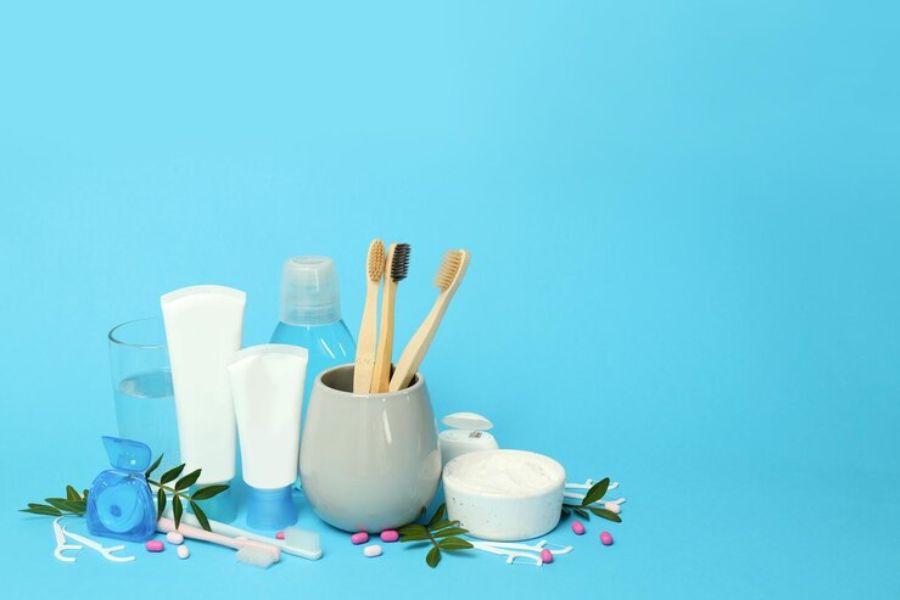The growing trend towards DIY mouthwashes is largely driven by a few factors.
Cost-Effective
Homemade mouthwashes can often be made with common household ingredients, making them potentially more cost-effective than store-bought alternatives.
Control Over Ingredients
With homemade mouthwashes, you know exactly what goes into your formula, allowing you to avoid certain chemicals or allergens if desired.
Various ingredients used in homemade mouthwashes come with potential oral health benefits.
Salt
Salt water rinses can provide temporary relief for oral discomfort and have mild antiseptic properties.
Baking Soda
Essential Oils
Certain essential oils, such as peppermint or tea tree oil, have antimicrobial properties that can potentially fight oral bacteria.
The effectiveness of homemade mouthwashes largely depends on their ingredients and how they’re used.
Salt Water and Baking Soda
Salt water and baking soda rinses can offer temporary relief from oral discomfort, but they do not provide comprehensive protection against oral bacteria, plaque, and cavities like commercial mouthwashes.
Essential Oils
While essential oils can have antimicrobial properties, they need to be used with caution as they can cause irritation if not properly diluted. Additionally, their effectiveness against oral bacteria may be limited compared to commercial mouthwashes.
Homemade Mouthwashes Are Not a Substitute for Professional Dental Care
While they may serve as a supplement to your oral hygiene routine, homemade mouthwashes should not replace professional dental care or products approved by dental health professionals.
Potential Risks
Some ingredients, like essential oils, can cause irritation or allergic reactions. It’s also important to note that homemade mouthwashes lack the preservatives found in commercial products, and thus have a shorter shelf life.
Conclusion: Balancing DIY Enthusiasm with Oral Health
While homemade mouthwashes can offer some benefits, they should not replace commercially available mouthwashes without a discussion with a dental professional. As always, maintaining regular dental visits and a robust oral hygiene routine is paramount for optimal dental health. For further reading, the American Dental Association provides a wealth of resources on oral care on their website.

